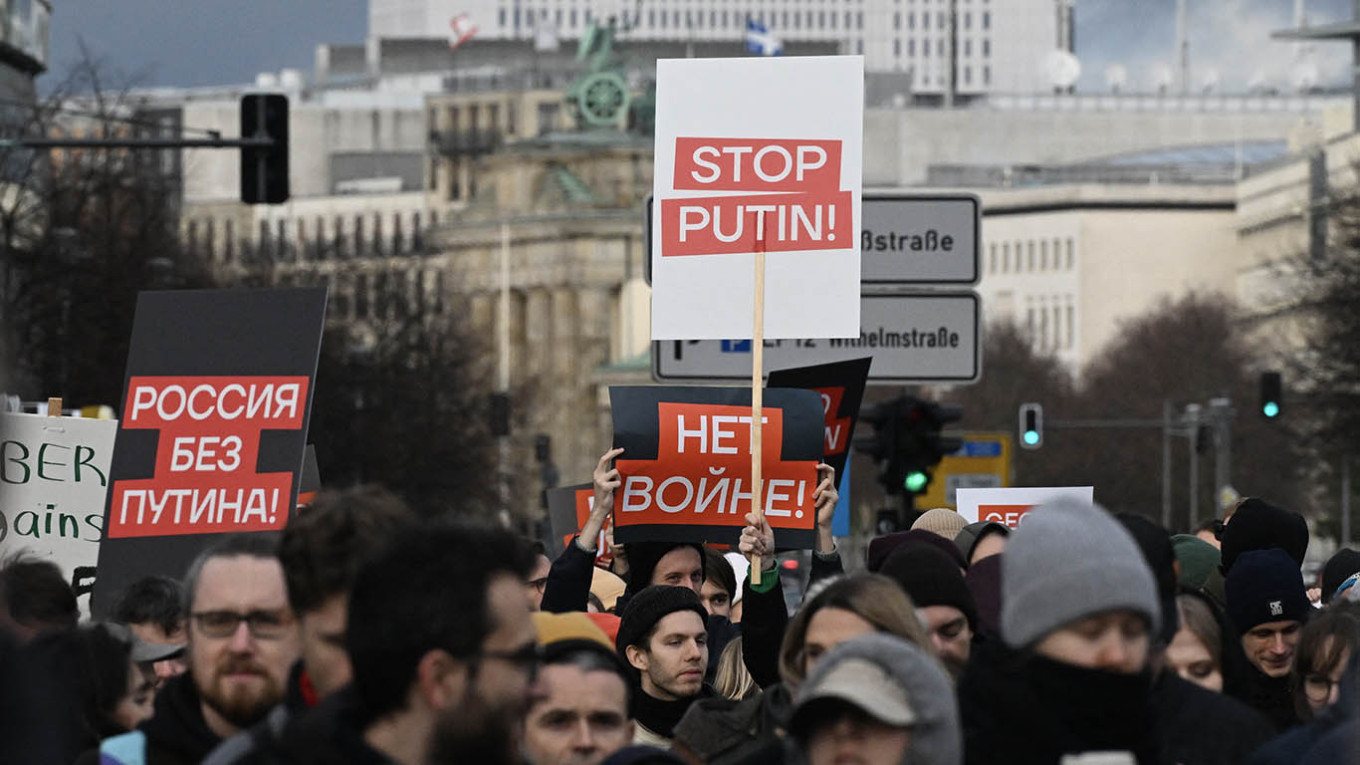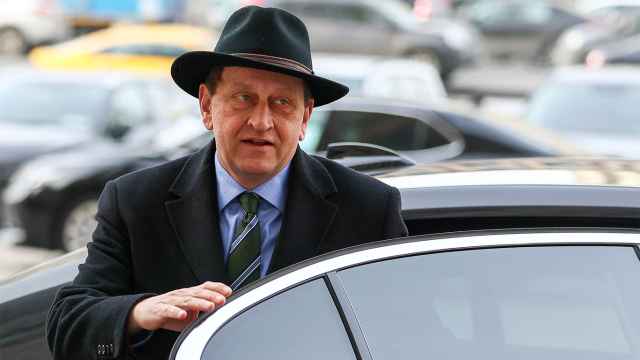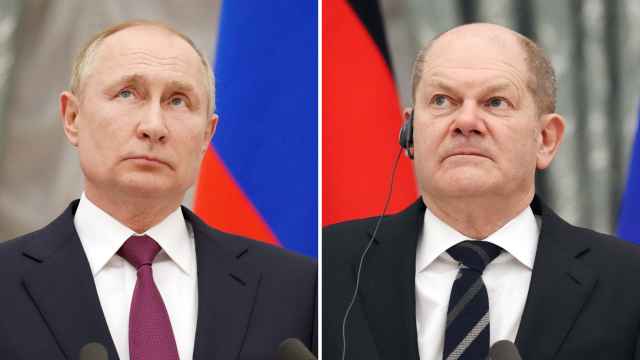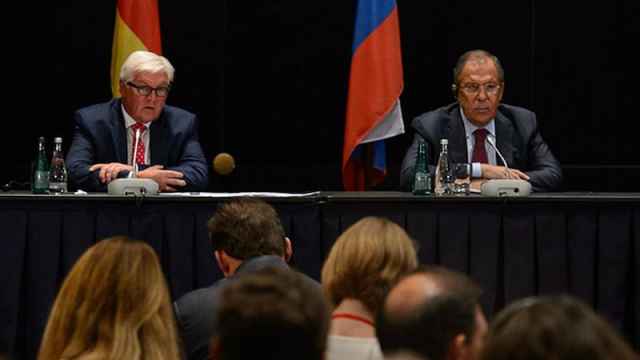The German Foreign Ministry’s program for providing humanitarian support to Russians and Belarusians has been suspended since the end of July. But instead of despairing, we need to take the opportunity to call for its reinstatement.
For most people, paragraph 22.2 is just an obscure clause of the German Residence Act. But it is precisely under this provision that I, along with other political prisoners exchanged from Russia, have remained in Germany. It provides the legal basis for a key mechanism that helps those who have suffered from repression continue their resistance.
Formally, the program has not been closed but frozen. But the effect is the same: without a new budget — which will be discussed soon — nothing will function.
There is also good news. The largest organizations involved in rescuing protesting Russians and Belarusians — NxT, Equal, InTransit, Horizons Exilhilfe, the German chapter of Reporters Without Borders, Quarteera and Libereco — have joined forces. Thanks to them, more than 2,000 people have already been saved. Journalists, public figures, and I myself have joined in.
It is important to understand that the suspension of aid is not the arbitrary decision of officials, but a political decision based on the stance of voters. This is why simple slogans will not work; a measured, well-argued approach is needed.
Our task is to convince Germany’s political leadership that this program is not a burden on the country’s budget but an essential tool for supporting allies — people who are fighting for democracy, for human rights and against war and dictatorship. This is literally a matter of saving lives.
The case of activist Leonid Melekhin proves this: he was deported from the United States to Russia and immediately charged with treason there. He now faces a minimum of 12 years in prison.
Meetings and discussions are already underway, and texts are being prepared. It is important to get involved — through publications, letters, and appeals. Here, these efforts can be heard.
We need to speak clearly and to the point — not for self-expression, but to give German politicians solid grounds to defend this program.
Right now, we are very much in need of your help.
If you are ready to join, write to [email protected], briefly introduce yourself and your activities and we will include you in our working discussions.
If you are not currently able to participate actively, you can still play a role in explaining to influential people why it is so important to restore specifically the Russian-Belarusian part of this program and what makes it unique. Share them at least with social media readers and, better yet, with journalists and officials — anyone you can reach.
This is not about those of us who are already safe, but about those who are at risk and in need of our help right now.
Germany’s political stance is one of opposing the regime in Russia, and Chancellor Friedrich Merz has articulated this very clearly and effectively. This means it is important to support those who resist. If they have nowhere to flee, there will be less resistance; they are, in effect, locked inside the country and forced to survive in silence. Paragraph 22.2 is Germany’s soft power — a promise of support and protection for those who continue to resist.
Not many people have come to Germany under this program. Since it began, 2,700 people have arrived — fewer than 1,000 a year. This is not a large number that would harm Germany’s budget. A similar annual quota would be acceptable in the future as well. We do not expect tens of thousands of people; 1,000 per year is quite a reasonable number.
Paragraph 22.2 is separate from Germany’s asylum process. Its description clearly states that it is based on Germany’s political interest and protection under it is granted to those who represent such an interest to the country. Germany’s interest lies in supporting resistance in Russia, which is partly coordinated by those who have already left.
Most of those who have left are highly educated, well-integrated, learning German and paying taxes. Some remain on benefits, in part because they continue working with Russian NGOs or in activism — supporting Russian resistance networks, working on volunteer projects to counter the current authorities in the Russian Federation.
The program itself is very well designed and structured, with reliable oversight — especially compared to the political asylum process. Serious case checks are conducted while the person is still in Russia or in a transit country outside the EU. Not a single German euro goes toward the applicant’s living costs during the application process — there is no need to finance a camp, housing, or food, nor to provide security or deportation in case of refusal.
Paragraph 22.2 has significant restrictions: applicants must have long-term connections with German organizations, documented proof of risk of staying in Russia and years of opposition activity, which are carefully verified by multiple agencies. The existence of such restrictions itself guarantees successful case outcomes and integration into European life.
For the Russian opposition, paragraph 22.2 is of enormous importance. It is considered a model program in other European countries. It is also part of the reason why Germany has become a center for the Russian opposition, with the most important opposition forces coordinating from Germany, maintaining contact with German politicians.
Right now, we urgently need to mobilize and help save this program!
A Message from The Moscow Times:
Dear readers,
We are facing unprecedented challenges. Russia's Prosecutor General's Office has designated The Moscow Times as an "undesirable" organization, criminalizing our work and putting our staff at risk of prosecution. This follows our earlier unjust labeling as a "foreign agent."
These actions are direct attempts to silence independent journalism in Russia. The authorities claim our work "discredits the decisions of the Russian leadership." We see things differently: we strive to provide accurate, unbiased reporting on Russia.
We, the journalists of The Moscow Times, refuse to be silenced. But to continue our work, we need your help.
Your support, no matter how small, makes a world of difference. If you can, please support us monthly starting from just $2. It's quick to set up, and every contribution makes a significant impact.
By supporting The Moscow Times, you're defending open, independent journalism in the face of repression. Thank you for standing with us.
Remind me later.








